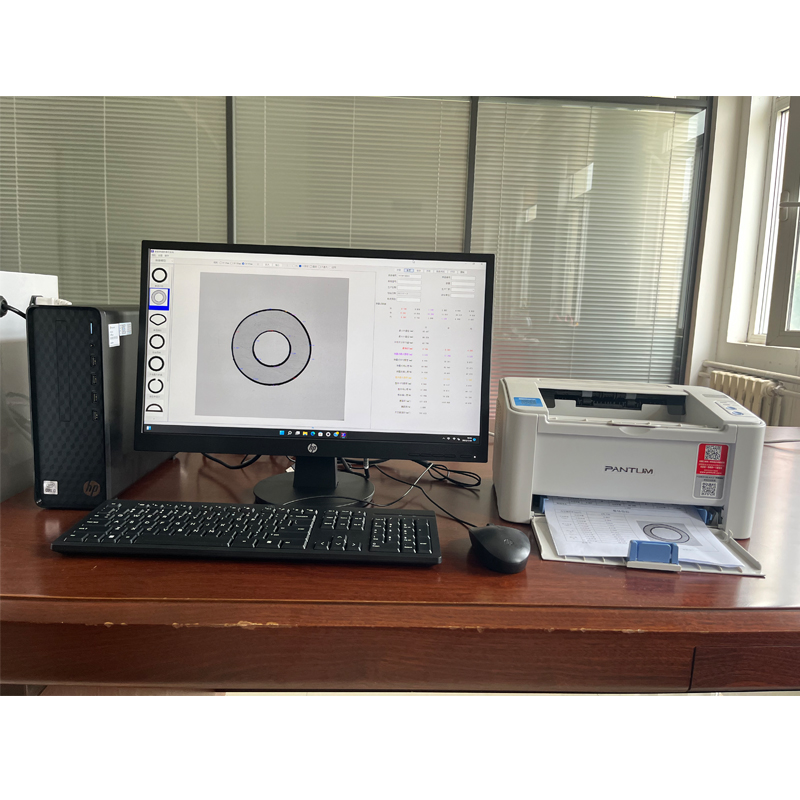cable flexibility test machine company
Understanding the Importance of Cable Flexibility Test Machines
In the world of electrical engineering and manufacturing, ensuring the quality and reliability of cables is paramount. One of the critical aspects of cable manufacturing is its flexibility, which determines how well the cable can withstand bending and twisting without damage. To assess this characteristic, cable flexibility test machines play a vital role in quality control processes. This article explores the significance, functionality, and benefits of using cable flexibility test machines in the industry.
What is a Cable Flexibility Test Machine?
A cable flexibility test machine is a specialized piece of equipment designed to evaluate the bending capabilities of various types of cables under specific conditions. These machines simulate the real-world scenarios that cables are likely to encounter, such as repeated bending, twisting, and flexing. By subjecting cables to rigorous testing, manufacturers can determine if their products can withstand the demands of everyday use without compromising performance or integrity.
The Importance of Cable Flexibility Testing
1. Quality Assurance The primary purpose of cable flexibility testing is to ensure that products meet established quality standards. Flexible cables are commonly used in environments where they may be subject to movement, vibration, or other mechanical stresses. Testing their flexibility helps manufacturers identify potential weaknesses that may lead to failures in the field.
2. Safety Cables that do not possess adequate flexibility may be prone to insulation cracking or conductor breakage, leading to electrical shorts or fires. By conducting flexibility tests, manufacturers can mitigate the risk of such hazards, ensuring consumer safety and compliance with regulatory standards.
3. Performance Optimization Understanding how a cable behaves under various conditions allows manufacturers to design better products. Insights gained from flexibility tests can inform material choices and construction methods, leading to more durable and efficient cable designs.
How Cable Flexibility Test Machines Work
Cable flexibility test machines operate by subjecting cables to controlled bending movements. The process generally involves the following steps
1. Sample Preparation Cables are prepared according to the specific standards required for testing. This may include cutting to a certain length or aligning conductors.
cable flexibility test machine company

2. Bending Procedure The machine bends the cable at predefined angles and cycles, simulating real-life operating conditions. The testing can be done using different parameters, such as speed, angle, and frequency of bends.
3. Data Collection and Analysis Throughout the testing process, various data points are recorded, including the number of bends, the extent of bend, and any signs of wear or damage. This data is then analyzed to assess the cable's flexibility rating.
4. Reporting After completing the tests, detailed reports are generated outlining the cable’s performance. This information is crucial for manufacturers to validate their designs and make any necessary adjustments.
Benefits of Investing in Cable Flexibility Test Machines
1. Increased Reliability With a dedicated testing machine, companies can ensure that their cables will perform reliably in their intended applications, reducing the likelihood of warranty claims and customer dissatisfaction.
2. Enhanced Product Development By utilizing flexibility testing during the R&D phase, manufacturers can innovate and improve their products, keeping up with evolving market needs and technological advancements.
3. Cost-Effective Solutions While there is an initial investment in cable flexibility test machines, the long-term benefits often outweigh costs. By reducing product failures and ensuring compliance, companies can save significantly on recalls, repairs, and replacements.
4. Competitive Edge In an ever-competitive market, having reliable, tested products can set a company apart from its competitors. Investing in cable flexibility testing shows a commitment to quality and customer satisfaction.
Conclusion
Cable flexibility test machines are indispensable tools for manufacturers seeking to uphold high standards of quality, safety, and performance in their products. By understanding and implementing these testing solutions, companies can deliver cables that not only meet but exceed customer expectations. Through rigorous assessment and continuous improvement, the electrical cable industry can innovate and provide reliable solutions for a wide range of applications.
-
Why the Conductor Resistance Constant Temperature Measurement Machine Redefines Precision
NewsJun.20,2025
-
Reliable Testing Starts Here: Why the High Insulation Resistance Measuring Instrument Is a Must-Have
NewsJun.20,2025
-
Flexible Cable Flexing Test Equipment: The Precision Standard for Cable Durability and Performance Testing
NewsJun.20,2025
-
Digital Measurement Projector: Precision Visualization for Modern Manufacturing
NewsJun.20,2025
-
Computer Control Electronic Tensile Tester: Precision and Power for the Modern Metal Industry
NewsJun.20,2025
-
Cable Spark Tester: Your Ultimate Insulation Assurance for Wire and Cable Testing
NewsJun.20,2025
 Copyright © 2025 Hebei Fangyuan Instrument & Equipment Co.,Ltd. All Rights Reserved. Sitemap | Privacy Policy
Copyright © 2025 Hebei Fangyuan Instrument & Equipment Co.,Ltd. All Rights Reserved. Sitemap | Privacy Policy
